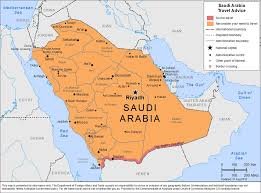The death of Jamal Kashoggi has produced a lot of fallout in term of politics, commentary and speculation.
However, despite all the noise it remains to see if there will be any major long-term negative consequences for Saudi Arabia in the wake of their ever-changing story and likely culpability in such a high profile brutal murder.
For example, the chances of the US and UK reducing the sale of arms for purposes of butchery in Yemen are very small. The usual excuse for this – “if we didn’t do it, someone else would” is not a line of argument that ever got a heroin dealer off the hook.
Outcomes and perceptions are heavily framed by the huge PR efforts undertaken by the Saudi regime, pretty much since the Wahhabi state was gerrymandered into existence under the auspices of British imperialism.
This is how a nation so closely connected to Islamic violence, terror and extremism is just as closely feted and appeased by nations who say they are vehemently opposed to the same phenomena.
One of the key narratives spun by and about Saudi Arabia in recent times is that Crown Prince Mohammed Bin Salman is a “reformer.”
By what criteria is he presented as a “reformer”?
Is it,
a) the mass arrests of opponents since his ascent to power,
b) His oversight of the pummeling of Yemen, one of the greatest humanitarian catastrophes on earth,
c) The recent declaration that online satire about his regime would earn 5 years in a Saudi jail
d) The continued beheading of women for “witchcraft” and a host of other repulsive policies continued from the reign of his father (still alive as king, though MBS is now the prime power broker.)
None of the above of course. Speakers on corporate and establishment media may have referred to the fact that some women have been allowed driving licences (feel the liberalism) but the most likely reason MBS was ever presented as a “reformer” is:
E) His flunkies said he is, and lots of journalists and politicians believed it (especially those on the receiving end of world-class Saudi “generosity.”)
The Kingdoms’ efforts really pay off at a time like this. The diplomatic consequences of the killing certainly present a big news management challenge, but there are plenty of cyphers in place to mollify and prevaricate on their behalf, on screen and behind the scenes (a spate of right-wing US commentators have already been activated to smear Kashoggis’ name.)
When the outrage eventually goes the way of nearly every story in this fast-paced media landscape, don’t be surprised if things carry on just as they have done.
After all, a UK government report on who (like, guess who) funds terror on our own streets remains suppressed a year after it’s production. This is now never cited by corporate media or establishment politicians.
If they won’t even speak out for us, forget them caring that much about a foreign dissident journalist.
Once again, corporate media has shown it’s weakness and susceptibility to malign influence and disinformation.
Stephen Durrant







